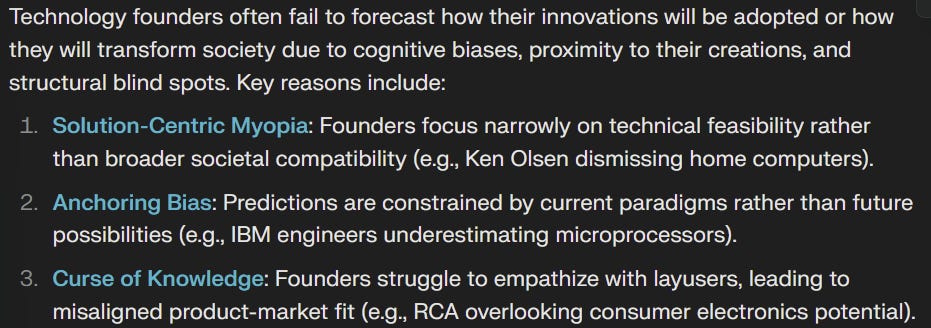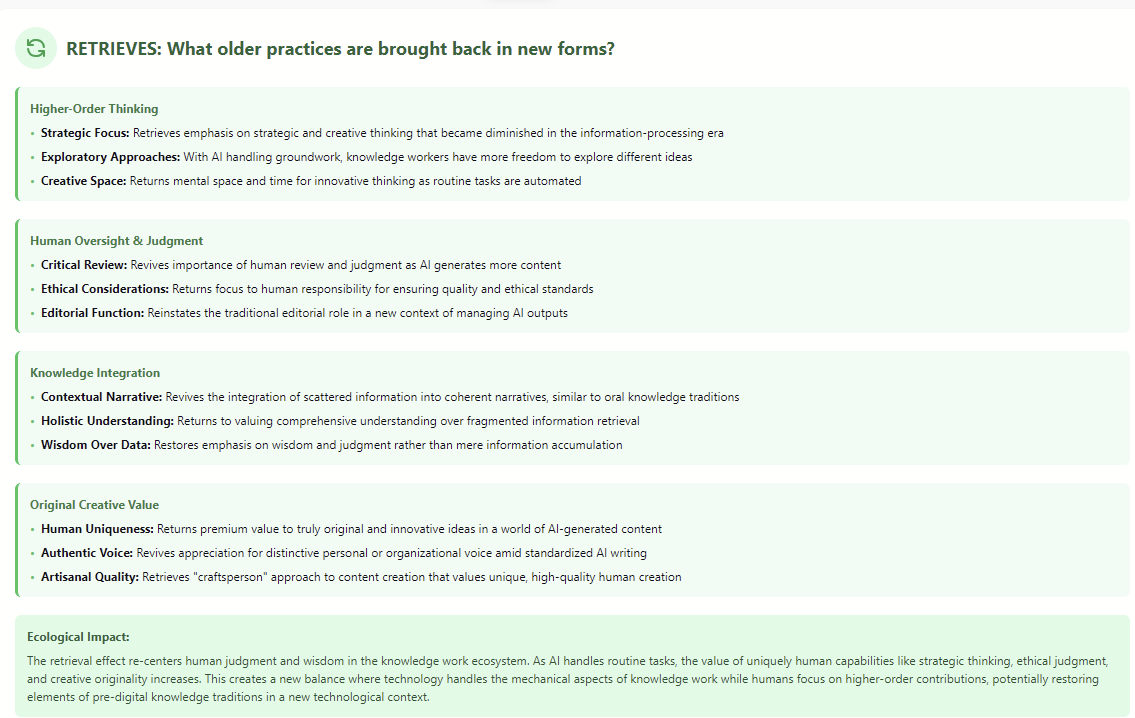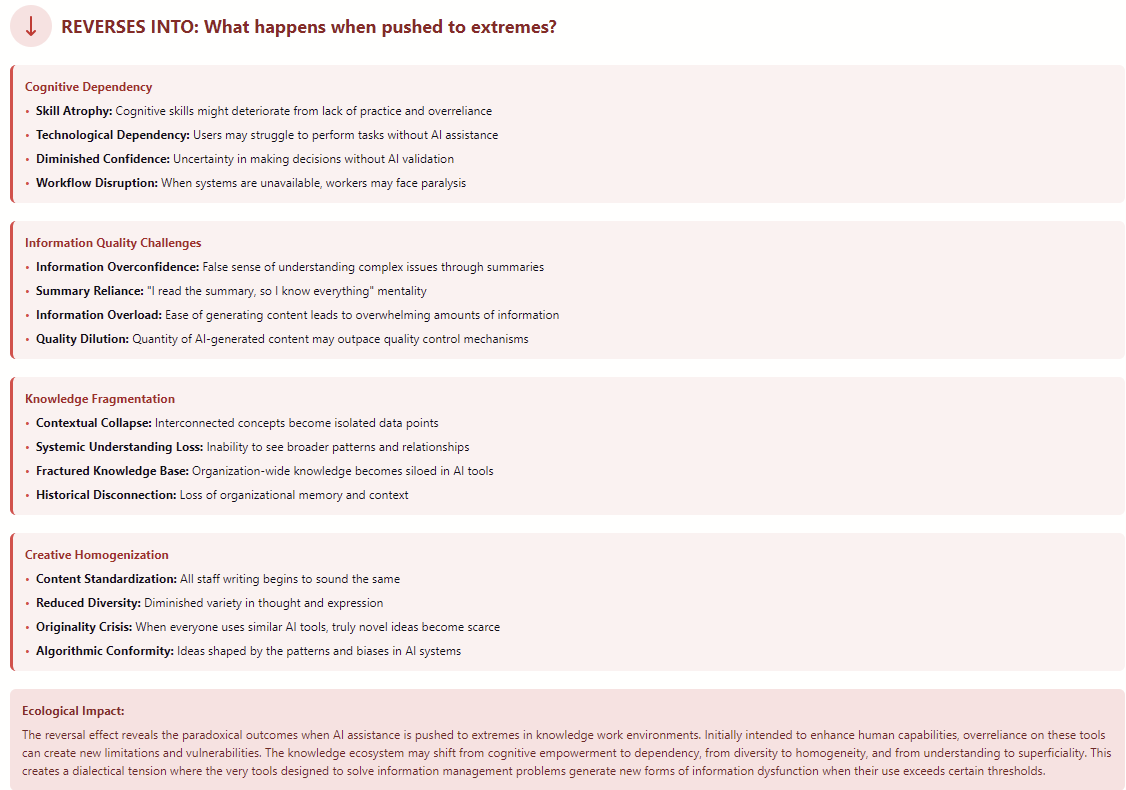The Ecological Impacts of Microsoft Copilot on Knowledge Workers
What does Copilot amplify? What does it bring back from the past? What does it reduce? What does it flip when pushed to the extreme?
The founders of new technologies are the worst at forecasting how their inventions will be adopted and more importantly how they will transform society. This can be explained for a few reasons:
There are many famous examples of this, but I will highlight one of the more salient ones impacts us right now…
AI labs/companies are doing an outstanding job at promoting the benefits of Generative AI products but they rarely acknowledge, much less explore the negative impacts these products pose to knowledge workers.
To investigate this further, I used the Tetrad of Media Effects framework developed by Marshall McLuhan, the pioneer of media ecology studies. McLuhan created this mental model in order to allow us to have a more holistic understanding of the ecological effects of technology on society. I explored this a few months ago with respect to all Generative AI technologies and that can be found here.
THE TETRAD OF MEDIA EFFECTS
Microsoft has been doing a great job at promoting all of the benefits of Copilot, but I wanted to explore the negative externalities this new Generative AI technology poses both on the near term and long term for knowledge workers, which the OBSOLESCES and REVERSE categories of the tetrad cover nicely.
Before I share my exploration of this topic I had Generative AI models, I wanted to share my reflections on this topic!
MY THOUGHTS ON MICROSOFT COPILOT (after a month of use)
ENHANCE: what does it amplify?
knowledge retrieval is much easier to do across the entire Microsoft Office ecosystem, which is a very new powerful ability.
help for users when they are stuck in a task and need mentorship, like getting a Excel formula to clean up data.
RETRIEVES: what does it bring back?
the reduction of shallow work tasks like email admin could open up time for higher order level thinking, like planning next set of tasks to work on or to optimize existing workflows that are inefficient.
OBSOLESCES: what does it obsolesce?
I am less attentive in Teams meetings because I can trust Copilot to give me a recap and action items.
REVERSE: what does it flip when pushed?
I am worried that human conversations will be more concise in order to avoid the contents of emails from being AI’d via the Outlook copilot Summarize feature
more dependency of AI tools,
Automation Bias
AI products are being designed to do all of the work of knowledge workers, not just the mundane.
If companies deploy copilot to their workers with the expectation of higher work output from workers, this could force knowledge workers to speed up workflow that could lead to more workers using System 1 thinking and letting AI do all of the work.
I created the following Claude 3.7 AI artifact to explore this topic further. The content in the infographics are based on my thoughts above along with the thoughts of Claude, Gemini, Perplexity, and Mistral AIs. An interactive version can be found here.
This analysis highlights how Generative AI products like Copilot are much more than simple tools but rather an entirely new medium that fundamentally change the ecology of knowledge work by altering our engagement with information and others.
Cheers!












Interesting analysis of the pros and cons of using Generative AI in different use cases. I think that leaders at these companies consider these uses and also talk through potential problems that they create by making this technology as well. It's like the creator of automobile. There are great things, and also,,, yeah...cars. Cheers!